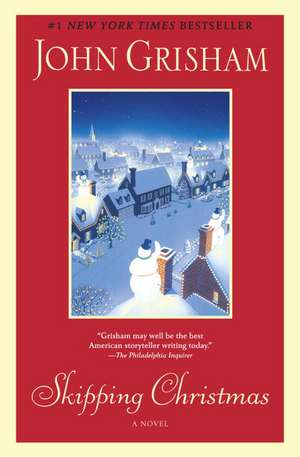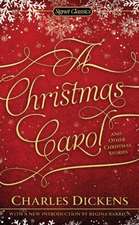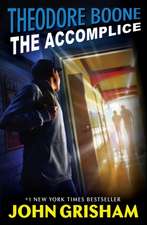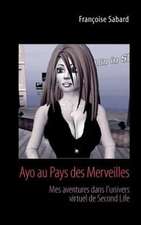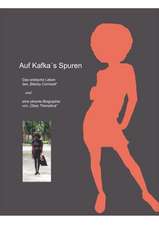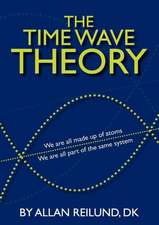Skipping Christmas
Autor John Grishamen Limba Engleză Paperback – 30 sep 2010
Imagine a year without Christmas. No crowded malls, no corny office parties, no fruitcakes, no unwanted presents. That’s just what Luther and Nora Krank have in mind when they decide that, just this once, they’ll skip the holiday altogether. Theirs will be the only house on Hemlock Street without a rooftop Frosty, they won’t be hosting their annual Christmas Eve bash, they aren’t even going to have a tree. They won’t need one, because come December 25 they’re setting sail on a Caribbean cruise. But as this weary couple is about to discover, skipping Christmas brings enormous consequences—and isn’t half as easy as they’d imagined.
A classic tale for modern times from a beloved storyteller, John Grisham’s Skipping Christmas offers a hilarious look at the chaos and frenzy that have become part of our holiday tradition.
| Toate formatele și edițiile | Preț | Express |
|---|---|---|
| Paperback (3) | 52.01 lei 23-34 zile | +17.14 lei 6-10 zile |
| CORNERSTONE – 3 noi 2011 | 52.01 lei 23-34 zile | +17.14 lei 6-10 zile |
| dell – 30 sep 2010 | 54.21 lei 3-5 săpt. | +18.96 lei 6-10 zile |
| Bantam – 30 sep 2010 | 88.45 lei 3-5 săpt. | |
| Hardback (1) | 116.72 lei 3-5 săpt. | |
| Doubleday Books – 30 sep 2002 | 116.72 lei 3-5 săpt. |
Preț: 88.45 lei
Nou
16.93€ • 17.49$ • 14.09£
Carte disponibilă
Livrare economică 05-19 martie
Specificații
ISBN-10: 0440422973
Pagini: 208
Dimensiuni: 135 x 202 x 14 mm
Greutate: 0.17 kg
Editura: Bantam
Notă biografică
Extras
The gate was packed with weary travelers, most of them standing and huddled along the walls because the meager allotment of plastic chairs had long since been taken. Every plane that came and went held at least eighty passengers, yet the gate had seats for only a few dozen.
There seemed to be a thousand waiting for the 7 p.m. flight to Miami. They were bundled up and heavily laden, and after fighting the traffic and the check-in and the mobs along the concourse they were subdued, as a whole. It was the Sunday after Thanksgiving, one of the busiest days of the year for air travel, and as they jostled and got pushed farther into the gate many asked themselves, not for the first time, why, exactly, they had chosen this day to fly.
The reasons were varied and irrelevant at the moment. Some tried to smile. Some tried to read, but the crush and the noise made it difficult. Others just stared at the floor and waited. Nearby a skinny black Santa Claus clanged an irksome bell and droned out holiday greetings.
A small family approached, and when they saw the gate number and the mob they stopped along the edge of the concourse and began their wait. The daughter was young and pretty. Her name was Blair, and she was obviously leaving. Her parents were not. The three gazed at the crowd, and they, too, at that moment, silently asked themselves why they had picked this day to travel.
The tears were over, at least most of them. Blair was twenty-three, fresh from graduate school with a handsome resume but not ready for a career. A friend from college was in Africa with the Peace Corps, and this had inspired Blair to dedicate the next two years to helping others. Her assignment was eastern Peru, where she would teach primitive little children how to read. She would live in a lean-to with no plumbing, no electricity, no phone, and she was anxious to begin her journey.
The flight would take her to Miami, then to Lima, then by bus for three days into the mountains, into another century. For the first time in her young and sheltered life, Blair would spend Christmas away from home. Her mother clutched her hand and tried to be strong.
The good-byes had all been said. "Are you sure this is what you want?" had been asked for the hundredth time.
Luther, her father, studied the mob with a scowl on his face. What madness, he said to himself. He had dropped them at the curb, then driven miles to park in a satellite lot. A packed shuttle bus had delivered him back to Departures, and from there he had elbowed his way with his wife and daughter down to this gate. He was sad that Blair was leaving, and he detested the swarming horde of people. He was in a foul mood. Things would get worse for Luther.
The harried gate agents came to life and the passengers inched forward. The first announcement was made, the one asking those who needed extra time and those in first class to come forward. The pushing and shoving rose to the next level.
"I guess we'd better go," Luther said to his daughter, his only child.
They hugged again and fought back the tears. Blair smiled and said, "The year will fly by. I'll be home next Christmas."
Nora, her mother, bit her lip and nodded and kissed her once more. "Please be careful," she said because she couldn't stop saying it.
"I'll be fine."
They released her and watched helplessly as she joined a long line and inched away, away from them, away from home and security and everything she'd ever known. As she handed over her boarding pass, Blair turned and smiled at them one last time.
"Oh well," Luther said. "Enough of this. She's going to be fine."
Nora could think of nothing to say as she watched her daughter disappear. They turned and fell in with the foot traffic, one long crowded march down the concourse, past the Santa Claus with the irksome bell, past the tiny shops packed with people.
It was raining when they left the terminal and found the line for the shuttle back to the satellite, and it was pouring when the shuttle sloshed its way through the lot and dropped them off, two hundred yards from their car. It cost Luther $7.00 to free himself and his car from the greed of the airport authority.
When they were moving toward the city, Nora finally spoke. "Will she be okay?" she asked. He had heard that question so often that his response was an automatic grunt.
"Sure."
"Do you really think so?"
"Sure." Whether he did or he didn't, what did it matter at this point? She was gone; they couldn't stop her.
He gripped the wheel with both hands and silently cursed the traffic slowing in front of him. He couldn't tell if his wife was crying or not. Luther wanted only to get home and dry off, sit by the fire, and read a magazine.
He was within two miles of home when she announced, "I need a few things from the grocery."
"It's raining," he said.
"I still need them."
"Can't it wait?"
"You can stay in the car. Just take a minute. Go to Chip's. It's open today."
So he headed for Chip's, a place he despised not only for its outrageous prices and snooty staff but also for its impossible location. It was still raining of course–she couldn't pick a Kroger where you could park and make a dash. No, she wanted Chip's, where you parked and hiked.
Only sometimes you couldn't park at all. The lot was full. The fire lanes were packed. He searched in vain for ten minutes before Nora said, "Just drop me at the curb." She was frustrated at his inability to find a suitable spot.
He wheeled into a space near a burger joint and demanded, "Give me a list."
"I'll go," she said, but only in feigned protest. Luther would hike through the rain and they both knew it.
"Gimme a list."
"Just white chocolate and a pound of pistachios," she said, relieved.
"That's all?"
"Yes, and make sure it's Logan's chocolate, one-pound bar, and Lance Brothers pistachios."
"And this couldn't wait?"
"No, Luther, it cannot wait. I'm doing dessert for lunch tomorrow. If you don't want to go, then hush up and I'll go."
He slammed the door. His third step was into a shallow pothole. Cold water soaked his right ankle and oozed down quickly into his shoe. He froze for a second and caught his breath, then stepped away on his toes, trying desperately to spot other puddles while dodging traffic.
Chip's believed in high prices and modest rent. It was on a side alley, not visible from anywhere really. Next to it was a wine shop run by a European of some strain who claimed to be French but was rumored to be Hungarian. His English was awful but he'd learned the language of price gouging. Probably learned it from Chip's next door. In fact all the shops in the District, as it was known, strove to be discriminating.
And every shop was full. Another Santa clanged away with the same bell outside the cheese shop. "Rudolph the Red-Nosed Reindeer" rattled from a hidden speaker above the sidewalk in front of Mother Earth, where the crunchy people were no doubt still wearing their sandals. Luther hated the store–refused to set foot inside. Nora bought organic herbs there, for what reason he'd never been certain. The old Mexican who owned the cigar store was happily stringing lights in his window, pipe stuck in the corner of his mouth, smoke drifting behind him, fake snow already sprayed on a fake tree.
There was a chance of real snow later in the night. The shoppers wasted no time as they hustled in and out of the stores. The sock on Luther's right foot was now frozen to his ankle.
There were no shopping baskets near the checkout at Chip's, and of course this was a bad sign. Luther didn't need one, but it meant the place was packed. The aisles were narrow and the inventory was laid out in such a way that nothing made sense. Regardless of what was on your list, you had to crisscross the place half a dozen times to finish up.
A stock boy was working hard on a display of Christmas chocolates. A sign by the butcher demanded that all good customers order their Christmas turkeys immediately. New Christmas wines were in! And Christmas hams!
What a waste, Luther thought to himself. Why do we eat so much and drink so much in the celebration of the birth of Christ? He found the pistachios near the bread. Odd how that made sense at Chip's. The white chocolate was nowhere near the baking section, so Luther cursed under his breath and trudged along the aisles, looking at everything. He got bumped by a shopping cart. No apology, no one noticed. "God Rest Ye Merry Gentlemen" was coming from above, as if Luther was supposed to be comforted. Might as well be "Frosty the Snowman."
Two aisles over, next to a selection of rice from around the world, there was a shelf of baking chocolates. As he stepped closer, he recognized a one-pound bar of Logan's. Another step closer and it suddenly disappeared, snatched from his grasp by a harsh-looking woman who never saw him. The little space reserved for Logan's was empty, and in the next desperate moment Luther saw not another speck of white chocolate. Lots of dark and medium chips and such, but nothing white.
The express line was, of course, slower than the other two. Chip's' outrageous prices forced its customers to buy in small quantities, but this had no effect whatsoever on the speed with which they came and went. Each item was lifted, inspected, and manually entered into the register by an unpleasant cashier. Sacking was hit or miss, though around Christmas the sackers came to life with smiles and enthusiasm and astounding recall of customers' names. It was the tipping season, yet another unseemly aspect of Christmas that Luther loathed.
Six bucks and change for a pound of pistachios. He shoved the eager young sacker away, and for a second thought he might have to strike him to keep his precious pistachios out of another bag. He stuffed them into the pocket of his overcoat and quickly left the store.
A crowd had stopped to watch the old Mexican decorate his cigar store window. He was plugging in little robots who trudged through the fake snow, and this delighted the crowd no end. Luther was forced to move off the curb, and in doing so he stepped just left instead of just right. His left foot sank into five inches of cold slush. He froze for a split second, sucking in lungfuls of cold air, cursing the old Mexican and his robots and his fans and the damned pistachios. He yanked his foot upward and slung dirty water on his pants leg, and standing at the curb with two frozen feet and the bell clanging away and "Santa Claus Is Coming to Town" blaring from the loudspeaker and the sidewalk blocked by revelers, Luther began to hate Christmas.
The water had seeped into his toes by the time he reached his car. "No white chocolate," he hissed at Nora as he crawled behind the wheel.
She was wiping her eyes.
"What is it now?" he demanded.
"I just talked to Blair."
"What? How? Is she all right?"
"She called from the airplane. She's fine." Nora was biting her lip, trying to recover.
Exactly how much does it cost to phone home from thirty thousand feet? Luther wondered. He'd seen phones on planes. Any credit card'll do. Blair had one he'd given her, the type where the bills are sent to Mom and Dad. From a phone up there to a cell phone down here, probably at least ten bucks.
And for what? I'm fine, Mom. Haven't seen you in almost an hour. We all love each other. We'll all miss each other. Gotta go, Mom.
The engine was running though Luther didn't remember starting it.
"You forgot the white chocolate?" Nora asked, fully recovered.
"No. I didn't forget it. They didn't have any."
"Did you ask Rex?"
"Who's Rex?"
"The butcher."
"No, Nora, for some reason I didn't think to ask the butcher if he had any white chocolate hidden among his chops and livers."
She yanked the door handle with all the frustration she could muster. "I have to have it. Thanks for nothing." And she was gone.
I hope you step in frozen water, Luther grumbled to himself. He fumed and muttered other unpleasantries. He switched the heater vents to the floorboard to thaw his feet, then watched the large people come and go at the burger place. Traffic was stalled on the streets beyond.
How nice it would be to avoid Christmas, he began to think. A snap of the fingers and it's January 2. No tree, no shopping, no meaningless gifts, no tipping, no clutter and wrappings, no traffic and crowds, no fruitcakes, no liquor and hams that no one needed, no "Rudolph" and "Frosty, " no office party, no wasted money. His list grew long. He huddled over the wheel, smiling now, waiting for heat down below, dreaming pleasantly of escape.
She was back, with a small brown sack which she tossed beside him just carefully enough not to crack the chocolate while letting him know that she'd found it and he hadn't. "Everybody knows you have to ask," she said sharply as she yanked at her shoulder harness.
"Odd way of marketing," Luther mused, in reverse now. "Hide it by the butcher, make it scarce, folks'll clamor for it. I'm sure they charge more if it's hidden."
"Oh hush, Luther."
"Are your feet wet?"
"No. Yours?"
"No."
"Then why'd you ask?"
"Just worried."
"Do you think she'll be all right?"
"She's on an airplane. You just talked to her."
"I mean down there, in the jungle."
"Stop worrying, okay? The Peace Corps wouldn't send her into a dangerous place."
"It won't be the same."
"What?"
"Christmas."
It certainly will not, Luther almost said. Oddly, he was smiling as he worked his way through traffic.
From the Paperback edition.
Recenzii
“Grisham is an absolute master.”—The Washington Post
“Never let it be said this man doesn’t know how to spin a good yarn.”—Entertainment Weekly
Descriere
#1 NEW YORK TIMES BESTSELLER
Imagine a year without Christmas. No crowded malls, no corny office parties, no fruitcakes, no unwanted presents. That’s just what Luther and Nora Krank have in mind when they decide that, just this once, they’ll skip the holiday altogether. Theirs will be the only house on Hemlock Street without a rooftop Frosty, they won’t be hosting their annual Christmas Eve bash, they aren’t even going to have a tree. They won’t need one, because come December 25 they’re setting sail on a Caribbean cruise. But as this weary couple is about to discover, skipping Christmas brings enormous consequences—and isn’t half as easy as they’d imagined.
A classic tale for modern times, Skipping Christmas offers a hilarious look at the chaos and frenzy that have become part of our holiday tradition.
